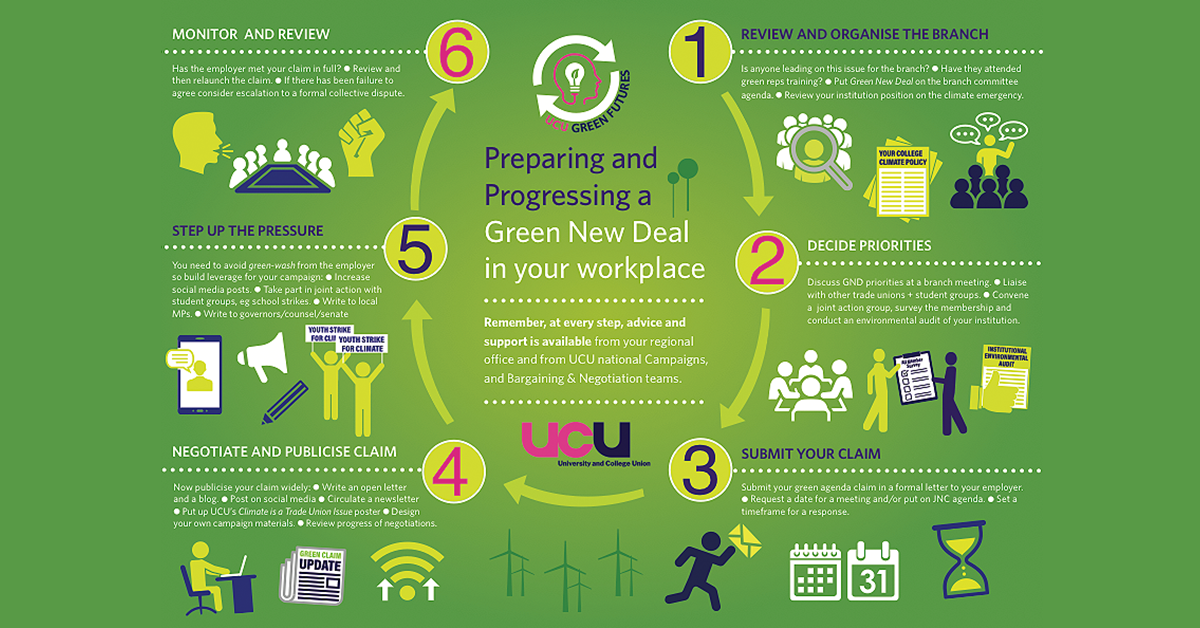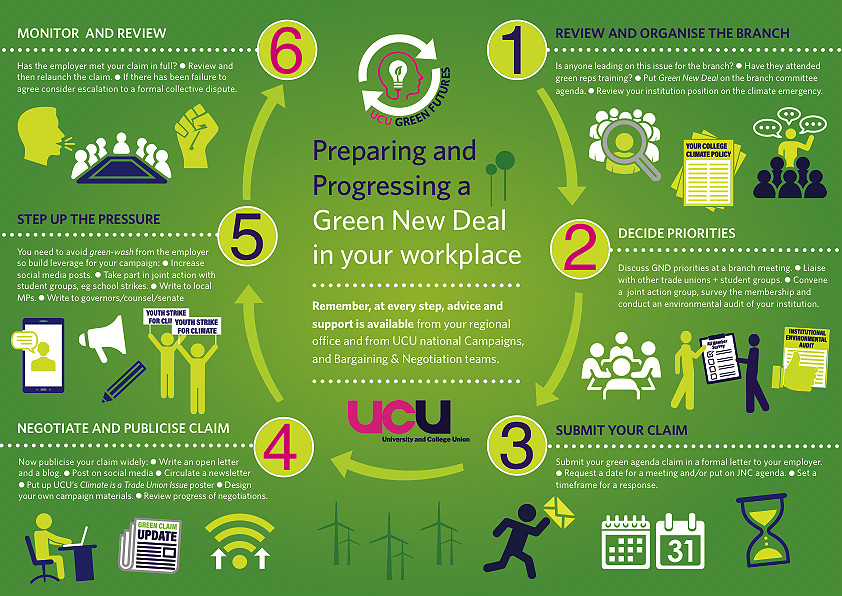
COP28 special: climate adaptation and industrial relations
16 November 2023
Following on from our previous COP28 special: COP28 United Nations Climate Change Conference: a trade union issue
The climate crisis is a workplace and a trade union issue. As reported in our first newsletter on COP28 United Nations Climate Change Conference, we need to ensure our education institutions and systems are adapting in response to the climate and ecological crises. This does not just mean responding to rising temperatures and increasingly severe weather, but also adapting to reduce further emissions and damage to the environment. We must recognise that our colleges and universities have a huge role to play in effecting change for bettering the lives of staff, students and the wider communities in which they operate. Yet the change cannot take place without the involvement of everyone, making trade unions a key actor in ensuring this happens in a just, fair and effective way.
In order to play this role, trade union branches need to negotiate with college and university managers to adapt in the right ways and bring along the right people. Adaptation requires reflective thinking, visioning, a range of perspectives and wider community engagement, not simply a top-down approach.
 Green New Deal bargaining claim blueprints
Green New Deal bargaining claim blueprints
Examples of climate-related negotiation are happening at a range of institutions, where the most effective action has garnered support from both the grassroots and managerial level. The University of Liverpool's Green New Deal bargaining claim is a blueprint for how to bring together staff and students in the process of forging positive change at whole institution scale, building on the UCU Green New Deal framework for colleges and universities. One of its key tenets is sustainable employment, bringing the claim in line with sustainable development goals around secure green jobs, sustainable production patterns and reducing inequality. It also acknowledges that formal trade union recognition, especially of green reps, are essential for continued training and development, representing members' concerns around the climate and ecological crises, and facilitating good working relationships that are aligned in their strategic aims. The Green New Deal framework provides a whole-institution, holistic framework for a Just Transition with adaptation for climate resilience at its core.
Trade union branches who have close working links with student movements are often the most beneficial kinds, especially where institutional managers are more intransigent. Building strong partnerships between the student movement and trade union movement can lead to more impactful bargaining and negotiating with an employer due to demonstrating both a student and staff demand for change, or in this context, climate adaptation. While climate education and environmental literacy are important pillars of undertaking climate adaptation (and something we will say more about in a future newsletter), many students are already well aware of the need for change and are pushing for it with their feet and their voices. Joined to staff calls for change, these are powerful and unignorable. Find out more about how students are mobilising nationally and at an institution level by connecting with your local students' union and seeing what is being done through Students Organising for Sustainability (SOS-UK).
Cross-union support
The education sector also has the potential to support other sectors, as it has the expertise in climate adaptation and climate research, the organising capability and strong roots across the country in every community. These existing strengths can be further reinforced by looking outward as well as inward to our own institutions and much progress has already been demonstrated where our colleges and universities are able to engage in community outreach and knowledge exchange around climate adaptation. Further links with trade unions across other industries can support co-learning and fruitful relationships.
Find out more - events and resources:
- Climate Justice Coalition, We Make Tomorrow. Event: London, 25th November 2023
- UCU Green New Deal
- UCU Green New Deal, quick guide to Industrial relations
- Students Organising for Sustainability (SOS-UK)
- Education International - Manifesto on quality climate change education for all!
- Just Transition toolkit, TUC Wales
- PrintPrint this page
- Share

